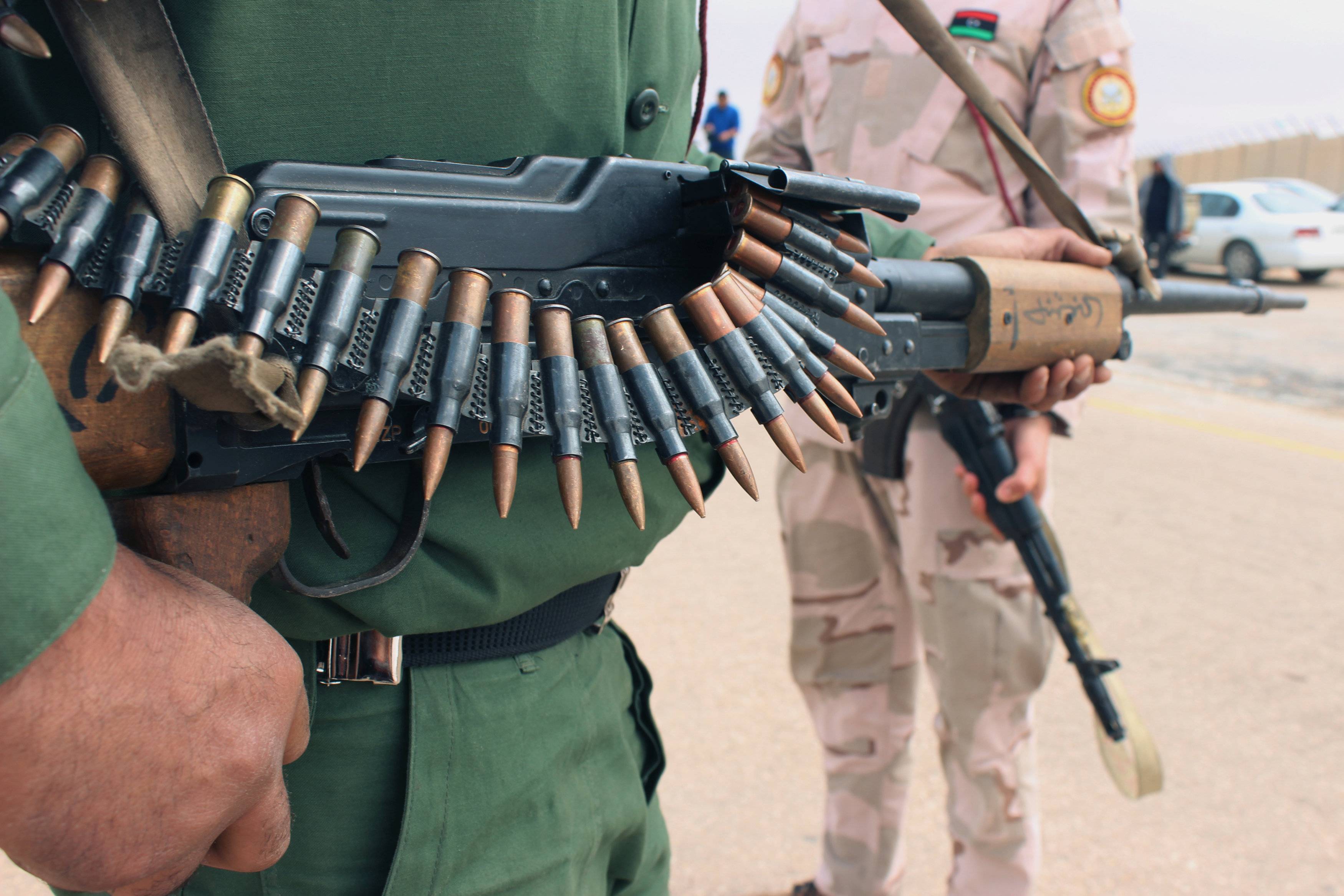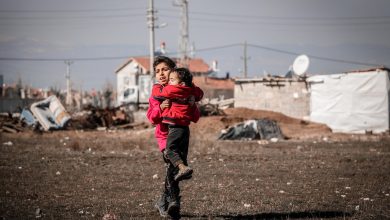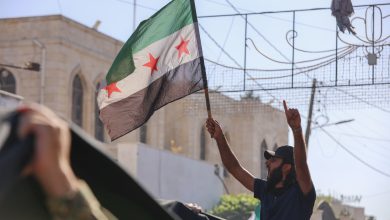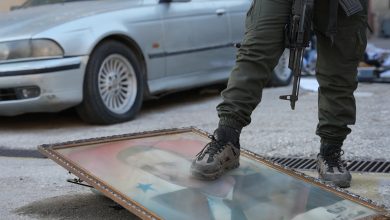Views: Three Layers of Conflict, the Impact of External Powers on Local Conflict Resolution in Libya

Local conflicts in Libya, Syria, Yemen and Iraq are increasingly diffused with regional and global power dynamics that have little or no direct stakes in the original local conflict yet significantly influence its development. Rather than thinking in terms of trans-regional security spill-over, the local, regional and global dimensions of a conflict must be conceived and processed in an integrated manner. While external actors play both facilitating and undermining roles in conflict resolution, the case of Libya exemplifies how the entanglement of regional and global geopolitical interests in a local conflict scenario tends to undermine the prospects for conflict resolution.
What makes Middle Eastern proxy wars so intractable? As local, regional, and global dynamics become entangled, the polarized geopolitical landscape in the Middle East and North Africa (MENA) further exacerbates the complexities of local conflict resolution.
The notion of a clearly discernible geographical space as the epicenter of conflict is losing traction. Local conflict is increasingly diffused with regional and global power dynamics that have little or no direct stakes in the original local conflict, yet significantly influence its development. Rather than thinking in terms of trans-regional security spill-over, the local, regional, and global dimensions of a conflict must be conceived and processed in an integrated manner.
Libya, Syria, Yemen and Iraq are caught in quagmire of external and internal power struggles. We may approach these conflicts in terms of three overlapping layers: local, regional, and global. These three layers, which feed and influence each other, represent the different levels at which conflicts are being escalated, fought, and potentially resolved.
While external actors cannot implement peace in a local conflict, they can conversely fuel such conflicts by supporting some of the warring factions politically, financially, and/or militarily, thereby tilting the balance towards one party or another. Equally importantly, they can bolster or undermine the framework in which local actors can negotiate settlement.
This article postulates that while external actors play both facilitating and undermining roles in conflict resolution, the interaction of regional and global geopolitical interests in a local conflict scenario tends to undermine the prospects for conflict resolution. As illustrated by the case of the Libyan civil war, the entanglement of (at least) three layers of power struggles – local, regional, and global – render the local conflict scenario increasingly intractable, to the degree that processes of national reconciliation are obstructed by regional and global agendas of external actors.
Three Layers of Conflict
If we frame Middle Eastern conflicts in terms of the above mentioned three-layer structure, the local layer is the mother conflict. This domestic level is essentially a struggle over governance; in other words – about the question of who rules the state and under which system it is governed. Domestically, most states in the Middle East and North Africa are, to varying degrees, socioeconomic time-bombs. The explosive merger of a swelling youth population with unemployment, lack of effective service provision, lack of meaningful reforms, bad governance, repression, and the fading age of hydrocarbons on which many authoritarian regimes in the region rely makes for an utterly unsustainable mix. To these components add the long-term cost of the bloodshed in Iraq, Syria, Yemen and Libya, and it becomes clear that the next popular uprising, and possibly armed conflict, is only a matter of time.
The second, regional layer is about maximizing influence in any given state, especially in regards to political and economic access. Using the example of Syria, the regional layer is about who, by means of the present conflict, is able to gain the most influence in Syria and in the Arab Levant more broadly. At the core of this layer is not an interest in Syria per se or its people, but a quest for political and economic access to a key regional anchor and transit state.
The main pillars of current Middle Eastern geopolitics condition the game at this regional level. These pillars include the growing weight of ambitious non-Arab regional powers such as Iran and Turkey; the polarization between Iran and an emerging Saudi-Israeli front and their respective allies; the proxy wars in Syria, Yemen and Libya as partial byproducts of this adversarial stand-off; and the controversies over the major policy issues that divide the region such as the Iranian nuclear file and the Arab-Israeli conflict. In this arena, the blurring of boundaries between state and transnationally operating non-state actors as geopolitical players further complicates the picture.
The third layer is how global politics, which has little or nothing to do with the country per se, plays out in the local conflict arena. This level is about leverage as the currency of power in a reshuffling world order. In the ongoing renegotiation of the rules of global governance and the weight of each player therein, global powers such as Russia or the United States play, for example, the Syria card to pressure their competitors in other geopolitical arenas. In this layer, Syria becomes a microcosm for a regional and global power contest. Russia entered Syria direly in need of leverage when its invasion of Crimea left it internationally isolated, and Europe’s pressing interest in the development of the Syrian war improved Moscow’s position vis-à-vis a West fiercely opposed Russia’s actions in Ukraine.
The Case of Libya
As in Syria, the local layer of conflict in Libya is ultimately about the terms of governance. Who governs Libya, under what kind of system? How is national oil wealth administered and shared? How is security ensured while re-establishing the state’s monopoly on the use of armed force? How to do justice to an array of heterogenous local players and governance structures while avoiding partition?
Since the 2011 NATO-led military intervention that toppled Muammar Gaddafi, Libya has struggled to move towards a stable, secure and balanced political and security arrangement. In 2015, an UN-brokered process led to the formation of a Government of National Accord (GNA) based in Tripoli to bridge national divides; however, the GNA failed to gain broad legitimacy, and has not been recognized by Haftar and his allies. Since then, political power has been split between two rival governments in Tobruk and Tripoli. Despite some elements of a functional economy and governance, Libya’s weak central institutions and improvised local arrangements have allowed a host of actors – including armed groups, city states, and tribes[1]– to compete for regional and local power. Control over the national territory is split between the GNA in Tripoli, headed by Fayez Serraj, the so-called Libyan National Army (LNA), led by Khalifa Haftar aligned with the Tobruk-based House of Representatives, and a host of powerful militias who control batches of land while competing for access to oil wealth, critical infrastructure, and smuggling opportunities. In addition, despite having lost their territorial stronghold, ISIS and al-Qaeda elements remain present and active.[2]
A UN mission led by Special Representative of the Secretary-General Ghassan Salamé has been attempting to break the Libyan polarized impasse by fostering national reconciliation and supporting Libyan efforts to find a governing formula behind which all the main factions can rally. An action plan presented by Salamé in 2017 called for an update to a stalled 2015 cease-fire, an inclusive national conference, an agreement among Libya’s rival factions to approve a new constitution and electoral law and prepare for elections by the end of 2018.
However, keeping a straight focus on the political reconciliation process, the efficiency of Salamé’s efforts has been eroded by the vested financial and political interests of the main players involved, all of whom benefit from the status quo and lack incentives to compromise. Salamé’s recent backing of early elections has sparked controversy over whether a deeply polarized country that lacks a basic national consensus is ripe for elections or may risk partition.
In this overall context, over the past eight years, a number of countries have played important but often unhelpful roles. Libya’s direct neighbours Egypt, Algeria and Tunisia; regional powers UAE, Turkey and Qatar, NATO members France, Italy, and the US, as well as Russia, have all taken up roles and supported different actors in post-Gaddafi Libya, each for their own specific interests and priorities.
At the regional layer, the interests of regional actors in Libya evolve broadly around two main sets of issues: immediate security concerns, and the broader regional power contest. The former revolves around the question how to contain security spillover to neighbouring countries in terms of radicalization, arms, and migration. The latter is related to the ongoing power competition in the broader Middle East that pins different factions against each other, resulting in their support of different Libyan factions according to their respective political preferences and affinities.
Libya’s direct neighbours Egypt, Algeria and Tunisia share legitimate concerns in preventing security spillover across Libya’s borders onto their own territories. Like no other Arab country, Egypt plays a key role in the Libyan civil war. Cairo is rightfully worried about the security of its western border. It therefore favours an autonomous status for Libya’s Eastern region, Cyrenaica, a posture interpreted by some as the desire to establish a de facto Egyptian protectorate in Eastern Libya.
For Cairo, having Cyrenaica controlled by an Egypt-friendly leader such as Haftar would create a buffer zone with ISIS and a territorial hinterland for any opposition to the Sisi regime.[3] The Sisi regime fears that Libya’s eastern border could become a safe haven for Islamist militias, where illegal weapons and militants could flow freely from Libya to the Sinai Peninsula. The presence of many Jihadist groups in both countries, such as Wilayat Sinai, reinforces this threat perception.
Cairo, hence, has been a close ally of General Haftar, notably sending weapons in violation of the UN Security Council Resolution 1970/2011, according to successive UN sanctions committee reports. Aside from providing Haftar’s LNA with “training and … ammunition, weapons and military equipment, including attack helicopters and fighter jets”, Cairo has also launched direct air raids against strongholds of Haftar’s opponents.[4] Cairo has also been vigorously lobbying for Haftar’s acceptance at the international negotiating table, alongside likeminded regional and international actors UAE, Russia, and France. At the same time, Egypt has nominally reaffirmed its support to the UN-led process even while torpedoing it simultaneously through its actions. Following the 2015 beheading of 21 Egyptian Copts by a Libyan cell affiliated to the Islamic State (IS), Egypt launched air strikes on ISIS positions in the Libyan cities of Darnah and Sirte.[5]
Tunisia’s fragile democracy has been threatened by violent extremists reportedly trained in camps across the border in Libya. Both Tunisia and Algeria have voiced objections to Egypt’s one-sided course in Libya. While lacking Egypt’s influence and leverage on this dossier, the two countries have nevertheless gained a seat at the table and have been vocal supporters of the reconciliation approach advanced by the UN-led process, while coordinating closely among each other to minimize security spillover from Libya into their territory.
Beyond neighbours’ immediate security concerns, however, Libya has also increasingly become a proxy arena for the broader regional tensions between Turkey and Qatar on the one hand and the UAE and Egypt on the other.[6]
The Sisi government’s support to General Haftar mimics Egypt’s domestic quagmires as it reflects Cairo’s military strongman approach to uproot Islamist rule at all cost, which it perceives as a threat to both its own rule and regional security. The United Arab Emirates share this regional political preference with Cairo, and at the same time, the UAE seeks to prevent its Gulf rival Qatar from making any inroads in Libya. Not sharing Egypt’s sense of geographical urgency, the UAE positions have been slightly more nuanced, yet the Emirates remain a staunch supporter of Haftar. Moreover, since its participation in the Saudi-led intervention in Yemen, the UAE’s has lessened it engagement in Libya. According to a report by the UN’s Libya Sanctions Committee, the UAE was operating a military base in Libya’s Al Khadim, about 100km east of Benghazi, the largest Emirati military base abroad. The same report established that the UAE has supplied attack helicopters and other military aircraft to Haftar’s LNA, in violation of UN-backed international sanctions.[7]
Qatar and Turkey both support Islamist-leaning rival factions to Haftar, for both pragmatic (economic) and ideological reasons. Turkey has delivered weapons to the defunct Libya Dawn coalition, while Qatar maintains links with an influential Libyan political figure and former jihadist, Abdelhakim Belhadj. Neither Turkey nor Qatar, however, have the same political influence over their Libyan allies that Egypt and the UAE have over theirs in Tobruk.[8]
At the global layer, a broad range of different questions are central to different actors. How to circumvent further security spillover across the Maghreb and Sahel? How to prevent a further destabilization of the European Union’s internal cohesion by means of poorly managed flows of irregular migrants? What impact of a permanently fragile Libya on the spread of violent extremism? Who replaces U.S. security leadership in a post-U.S. Middle East? What role for Russia in Middle Eastern and Mediterranean affairs? To which degree will Russia play out its increasing influence in Libya and the Mediterranean to gain leverage on Europe and in other geopolitical arenas?
The 2011 NATO-led military intervention based on UNSC 1973, which many Libyans enthusiastically welcomed, has become notably more controversial in retrospect as the lack of follow up by the intervening powers and the ensuing security vacuum are considered to have provided key ingredients for Libya’s current problems. The intervention, critics have asserted, set free Libya’s vast conventional weapons stockpiles, gave rise to extremist groups, and even exacerbated the conflict in Syria by breeding a host of foreign fighters.[9]
Today, Libya matters to the United States and Europe for a number of reasons. Libya has produced a large number of foreign fighters in Syria, and the outlook of a breeding ground of terror cells amidst an effective governance vacuum in Libya matters to both. The possible destabilization of neighbouring Egypt, Tunisia, Algeria, Mali, Chad and Niger is also a worrying prospect. Finally, both Europe and the United States are weary of Russia seeking greater regional influence, including strategic maritime access, in the Mediterranean by creating inroads in Libya.[10]
Despite these concerns, Libya quickly ceased to be a priority for the United States following the 2011 intervention. The murder of U.S. ambassador Stevens and other Americans in Benghazi in September 2012 led to a reduction in American engagement in Libya, which has been focused on targeted operations against ISIS in support of the GNA, including airstrikes, between 2015 and 2017. Calls for a broader US involvement in Libya have been frequent especially from Europe, asserting that the US should use its unique leverage on the external powers involved whose interference undermined the prospects of the UN peace process. However, beyond the concern for Libya as a focal point of its global war on terror, the United States does not share Europe’s concerns of regional destabilization, illicit migration and trafficking from Libya with the same sense of urgency. The predominant posture from Washington, therefore, has been that this is a problem that needs to be taken up above all by Europe in cooperation with its African partners.[11]
In Libya, the EU has shown a far greater willingness of political and military involvement than in any other of the Middle East/North Africa’s current hotspots. A combination of Libyan insecurity’s direct impact on European cohesion and the fact that the United States has remained largely hands off is likely to have increased the bloc’s motivation early on. France and the UK, with the cooperation of Arab nations and the support of the rest of the EU members, led in the spring of 2011 a diplomatic offensive at the UN, which was then followed by the military intervention in Libya. When the fragile internal political consensus among the different Libyan factions in the aftermath of the intervention fell apart, unlike the United States, Europe remained present and active on the Libyan stage. Although the Europeans’ active role in Libya has been controversial at times, the EU maintains a leading role in supporting the UN-led peace process.[12]
Due to its proximity – Italy is only 290 miles off the Libyan coast – Europe has a greater sense of urgency regarding Libya’s security challenges. European policy makers, entangled in their own domestic cohesion crisis over Brexit and immigration-induced rightwing populism, see largely through a security and migration prism. Libya has been the main transit country for Sub-Saharan migration to Europe, turning Libya’s permeable Southern Fezzan province into the de facto Southern border of Europe.[13]As a consequence, migration containment and security cooperation have been at the center of EU cooperation with Libya, to the detriment of a broader support to Libyan state-building on the whole. Europeans’ insistence on processing irregular migrants in transit camps on Libyan soil, despite the well-documented inhumane conditions in these camps, has been sharply criticized by human rights organisations.
Europe’s rightwing drift following the 2015/16 refugee crisis led to increasingly hawkish stances on migration that put further strain on Libya’s weak governing institutions. The Italian government led by a coalition of right- and left-wing populists made the reduction of migration flows to Italy its top priority, introducing a draconian policy of rejecting all migrant boats from Italian ports to pressure other European states into accepting more arrivals. Italy’s new hawkish stances on migration could have disastrous knock-on effects in Libya, which already hosts over 650,000 migrants whose legal limbo in mass migrant camps is set to exacerbate the problems of migration management unable to be coped with by theweak Libyan authorities.[14]
A major controversy regarding European engagement in Libya has been related to the pronounced rivalry between France and Italy in Libya, which is widely considered to have been undermining the UN-led peace process currently pushed forward by UN Special Representative Ghassan Salame. The reasons for the French-Italian competition are partially rooted in vested interests linked to the current domestic situation in each of the two European countries. Italy’s economic interests are Tripoli and the GNA-controlled West, while France’s concerns for the lawless south are also rooted in Paris’ interest in safeguarding its political investments in the Sahel.
Therefore, while nominally backing the UN-led political process, Italy and France each support rivaling factions that best align with their vested interests, France reportedly backing Haftar in the east and south and Italy the GNA in the west. Beyond their narrower economic competition over access to Libyan oil for their respective national oil companies, however, France and Italy maintain a long-standing rivalry over migration, European leadership in the Mediterranean, and the future of Europe more broadly, that transcend the Libyan dossier. As much as a competition over political and economic access in Libya, the French-Italian rivalry is one of two opposing European political trends over the future course of the European Union.[15]
Russia abstained from UN Security Council Resolution 1973 in 2011, thereby allowing the resolution to pass, although it has been critical of the notion of regime change in Libya in its aftermath. Today, Moscow’s interests in Libya are economic, security-related and strategic. On the economic side, Libya is an important arms market, and Russia seeks influence on Libya’s hydrocarbon industry. Prior to 2011 revolution, Moscow sold arms worth billions to Libya and its state oil companies were deeply involved with their Libyan counterparts. A major gas contract negotiated with Gaddafi in 2009 would have further heightened Russian dominance of European gas supply.
Russia’s increased involvement in Libya has raised concern among Western allies. On the heels of the Russian military intervention in Syria, Moscow’s role in Libya’s civil war has raised fears that once again the Kremlin was seeking to consolidate the power of a pro-Russian regional strongman favourable to Moscow, in the service of a greater design to entrench Russian influence around the Mediterranean.[16] In late 2018, British intelligence reports claimed that Russia was preparing a military presence in Libya, possibly via a permanent base, have been refuted by Russian foreign minister Sergej Lavrov. Europeans in particular have been worried that by establishing a military foothold in Libya where European interests are deeply entrenched, Putin seeks to increase his leverage over Europe. However, some analysts assert that for Moscow, the more tangible goals of reviving arms sales and combating terrorism takes precedence over taking control of migration routes to exert pressure on Europe.[17]
Russian officials stress their support to the UN-led process of reconciliation and to the principle of non-interference, while at the same time supporting General Haftar’s LNA. Unlike its allies in Cairo, however, Moscow has adopted a more nuanced approach. On the military side it backs Haftar in the East, while also engaging the UN-backed government in Tripoli. While Russia cannot supply weapons to Haftar directly, it can circumvent the weapons embargo by delivering through third states.[18] It has also received Haftar in Moscow like a foreign leader and has provided material assistance ranging from financial to military and technical assistance to the LNA, which relies almost entirely on Soviet weaponry.
Russia’s support to Haftar, according to some experts, is threefold: gaining access to economic advantages, in particular in the lucrative area of energy, thereby making up for the loss of pre-2011 deals; consolidating its military position on the Mediterranean Sea through a military presence in Libya, thereby enhancing its leverage over Europe and the broader MENA region; and reaping the geostrategic dividends of a player able to settle regional crisis, positioning itself in the role of pacifier and dealmaker that the United States has failed to fulfil.[19]
Conclusion: Risks and Opportunities of External Involvement
The most widely acknowledged notion regarding the role of outsiders in the Libyan conflict has been that Western nations ignored the hard-learned lessons of the Iraq and Afghanistan interventions. The most important of these lessons is that while toppling governments is relatively easy, helping to build functional and legitimate governance structures in countries with no or little democratic history is the hard, and requires presence and support.[20] No doubt, members of the NATO-led coalition that intervened in 2011 bear responsibility for the lack of follow-up that allowed security and government vacuums to thrive. At the same time, while outside intervention exacerbated many of Libya’s domestic problems, the central role of outside players has also often been used by Libyan players to belittle the agency and responsibility of domestic actors in national conflict resolution and wind down the compromises needed to achieve durable peace.
Over the course of the eight years since the ouster of Gaddafi, differing views among key European and Middle East powers and Russia over which groups to favor have exacerbated rivalries and undercut the UN-led peace process. While the concerns of Libya’s immediate neighbours to prevent security spill-over are legitimate, Egypt and the UAE, Turkey and Qatar have been motivated, to varying degrees, by the pursuit of their larger (often domestically motivated) regional agendas on Libya’s back. The European Union, while present and active in Libya in support of the UN-led process, has been too fixated on its own domestic cohesion crisis to the detriment of a more comprehensive view on Libya beyond the migration and security lens.
Moreover, competing French and Italian vested economic and political interests have undercut the UN process. The United States’ marked foreign policy failure of failing to follow up on the Libya intervention has remained without consequence as the US is increasingly looking inward and Donald Trump shows little appetite in trying to make up for the past administrations’ omissions. As elsewhere in the region, Russia is apt at benefiting from political and security vacuums and is taking its chances for both economic and geopolitical gain. In sum, Libya’s oil riches and strategic geographical position have been a liability to the country as since 2011, external actors with entrenched interests in Libya have increasingly been undermining the quest for durable peace to foster their own vested interests and/or larger regional and global agendas.
The increasing cross-fertilization of local Middle Eastern conflicts with other geopolitical arenas is worrying, as it is linking the prospect of Middle Eastern stability – complicated enough as it is – to the complexities of global geopolitics. Although the three-layer structure to conflicts is not specific Libya or to the Middle East alone, it may be especially pronounced in this region due to the high conflation of regional and global powers’ interests. It is notable that the only MENA country in which the 2011 popular uprisings have resulted in a reasonably stable democratic governance arrangement is Tunisia, a country with no meaningful geopolitical assets to attract foreign involvement.[21]
The challenge for policy-makers is that three layers are intrinsically linked. Neither Libya, Yemen, nor Syria will be pacified without a sustainable answer to the governance question. But not even the best governance agreement will hold while regional powers fuel conflict through money and weapons, altering the balance of power and reducing the warring factions’ incentives to seek compromise, or while global powers continue fighting their larger geopolitical battles on Libyan, Yemeni or Syrian soil. The interconnectedness of the three layers means that a layer conflict requires a layer approach to conflict resolution, which addresses all three layers simultaneously. The diffusion of different geographical and geopolitical spaces must be made workable in policy.
[1] Mattia Toaldo: A Quick Guide to Libya’s Main Players, European Council on Foreign Relations, 2018.
[2] Robert Allen et al: Empowered Decentralization: A City-Based Strategy for Rebuilding Libya, Brookings Institution, February 2019.
[3] Toaldo, op cit.
[4] Guma El Gamaty: Foreign interference is threatening Libya’s future as one state, Al Jazeera, 7 March 2018.
[5] Giuseppe Dentice: Egypt’s security and Haftar: al-Sisi’s strategy in Libya, ISPI, 2 February 2017.
[6] Ursula Lindsey: Libya and Egypt, The Arabist, 17 February 2015.
[7] United Nations Security Council: Letters dated 5 September 2018, and 28 December 2018, from the Panel of Experts on Libya established pursuant to resolution 1973 (2011) addressed to the President of the Security Council, S/2018/1176 and S/2018/812.
[8] United Nations Security Council, op cit.
[9] Alan J. Kuperman: Obama’s Libya Debacle, Foreign Affairs, March/April 2015.
[10] Allen et al, op cit.
[11] Hafed al-Ghwell: The United States should not get involved in Libya’s civil war, Atlantic Council, 14 November 2018.
[12] Pierre Vimont: Europe: In Search of a Role, The Cairo Review of Global Affairs, Fall 2018.
[13] International Crisis Group: How Libya’s Fezzan Became Europe’s New Border, ICG, 31 July 2017.
[14] Federica Saini Fasanotti, Ben Fishman: How France and Italy’s Rivalry Is Hurting Libya, Foreign Affairs, 31 October 2018.
[15] Fasanotti/Fishman, op cit.
[16] Pigman, Orton: Inside Putin’s Libyan Power Play, Foreign Policy, 14 September 2017.
[17] Omar Shariff: Russia’s role in Libya more nuanced than it seems, Gulf News, 10 December 2018.
[18] Wolfgang Pusztai, The Haftar-Russia Link and the Military Plan of the LNA, ISPI, February 2017.
[19] Pigman/Orton, op. cit
[20] Allen et al, op. cit
[21] See also Kristina Kausch: Tunisia’s Blessed Scarcity, FRIDE, 2014.
Read this post in: العربية





